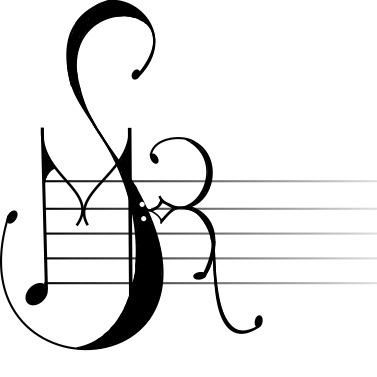
Earlier this week, Michael Schachter successfully defended his dissertations. You read that correctly: as a Theory/Composition PhD, he had to write two dissertations. Please see below for titles and abstracts. Congratulations, Michael!
* * *
Vol. I: "The Black Clown"
Abstract
The Black Clown is a music-theatrical work scored for Bass-Baritone, mixed chorus, and orchestra. Adapted from the dramatic monologue of the same name by Langston Hughes, the work fuses influences from vaudeville, gospel, opera, jazz, and spirituals to bring Hughes’ verse to life onstage and animate a black man’s resilience against a legacy of oppression. The orchestration is informed by the theater and “popular music” orchestras common in 1920s and 1930s New York, not unlike what Hughes would have heard if he had spent an evening at the Cotton Club.
Developed with starring Bass-Baritone Davóne Tines, the full stage work of The Black Clown was commissioned by the American Repertory Theater, who premiered the work with a four-week run in August–September 2018, which will be followed by a production this coming July at the 2019 Mostly Mozart Festival at Lincoln Center.
Vol. II: "On Musical Reasoning: A Garland of Three Articles"
Abstract
This dissertation consists of three articles, each of which explores questions of musical reasoning: the processes, frameworks, and heuristics through which we mediate our understanding about music.
In “‘Autumn Leaves’: Intricacies of Style in Keith Jarrett’s Approach to the Standard,” I examine a traditional divide in theoretical conceptions of jazz improvisation, between “formulaic” models on the one side and “organicist” models on the other. Using transcription and analysis of Keith Jarrett’s performance of “Autumn Leaves” from the 1994 album Live at the Blue Note, I highlight core aspects of Jarrett’s improvisatory practice, showing them to be neither as inscrutable as many peers and critics tend to assume, nor as uncomplicatedly schematic as demonstrable in other performers. In doing so, I propose that Jarrett reveals a middle path between the assumed poles of “formulaic” and “organicist” ideological extremes.
In “Structural Levels in South Indian Music,” I propose a theory of structural levels in Karnatak music, the classical music of South India. In the characteristic patterns of melodic ornamentation and phrase construction that contribute to the identity of a raga, as well as in formal approaches to composition and improvisation, Karnatak musical practice involves sophisticated elaborations of simple voice-leading strands that themselves elaborate a normative background structure. My theory draws on precedents in Indian musical scholarship, firsthand accounts of practitioners, and close analysis of performances (including those of T. M. Krishna, Bombay Jayashree, Lalgudi Jayaraman, Ranganayaki Rajagopalan, and Karaikudi S. Subramanian) and compositions (including those by Tyagaraja, Muthuswamy Dikshitar, and Papanasam Sivan).
In “Categories, Ambiguity, and Hybridity,” I apply recent thought in the philosophy of categories to musical contexts. For millennia in the West, we have more or less unquestioningly subscribed to Aristotle’s conception of “natural categories”: that categories can be concretely defined through necessary and sufficient conditions, and that membership in a category is binary (“in” or “out”) and validated through logic. As intuitive as this conception is, thinkers such as Ludwig Wittgenstein (1953) demonstrated that in practice, we tend to have much more fluid, “family-resemblance” conceptions of categories, which are defined not by universal criteria but by overlapping networks of properties, not all of which need be present in any one member; moreover, these categories can have fuzzy spectra between “in” and “out,” as well as gradience in terms of degree of membership. In this article, I explore how issues of categorization have been chafing at music theorists and practitioners for centuries, and how the new categories can suggest transformative approaches to old problems as well as windows to new avenues in analysis. I demonstrate this potential through a case study in ambiguity, showing how much old models of reasoning (assuming ambiguity to be an intolerable uncertainty to be definitively resolved) can benefit from the new categories, in particular the significant compositional and analytical richness that opens up through the concept of hybridity.
Recent Posts
SMR to Host Midwest Graduate Music Consortium 2025 Conference – January 13, 2025
SMR Welcome BBQ at County Farm Park – October 01, 2024
Julian Grey defends dissertation – June 05, 2024
Michaela Franzen defends dissertation – May 21, 2024
Kai West defends dissertation – May 16, 2024
Micah Mooney and Carlos Pérez Tabares present at Music Theory Midwest – May 12, 2024
SMR end-of-year round-up at County Farm Park – April 25, 2024
SMR hosts Research Showcase – September 29, 2023
 Society for Music Research
Society for Music Research